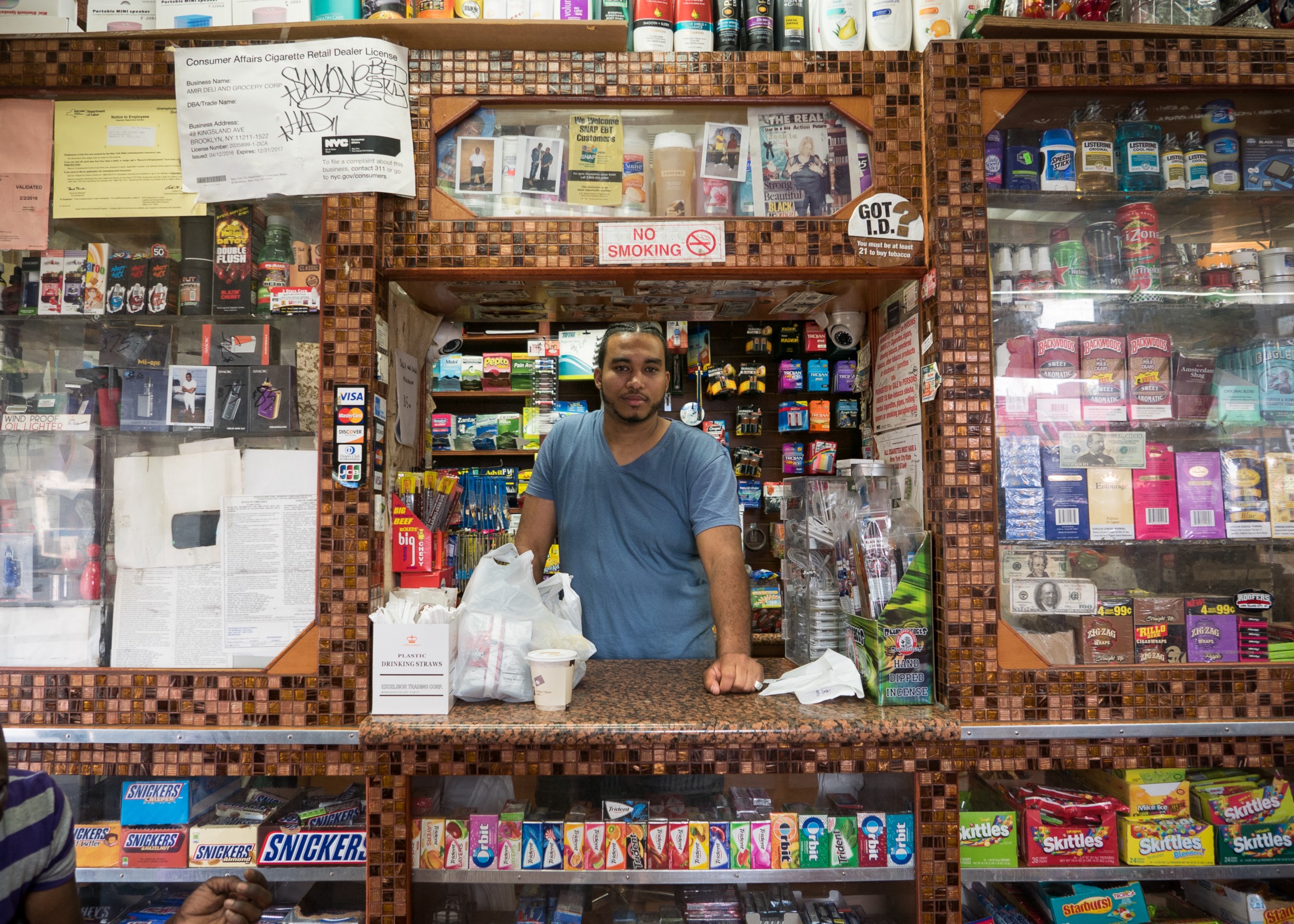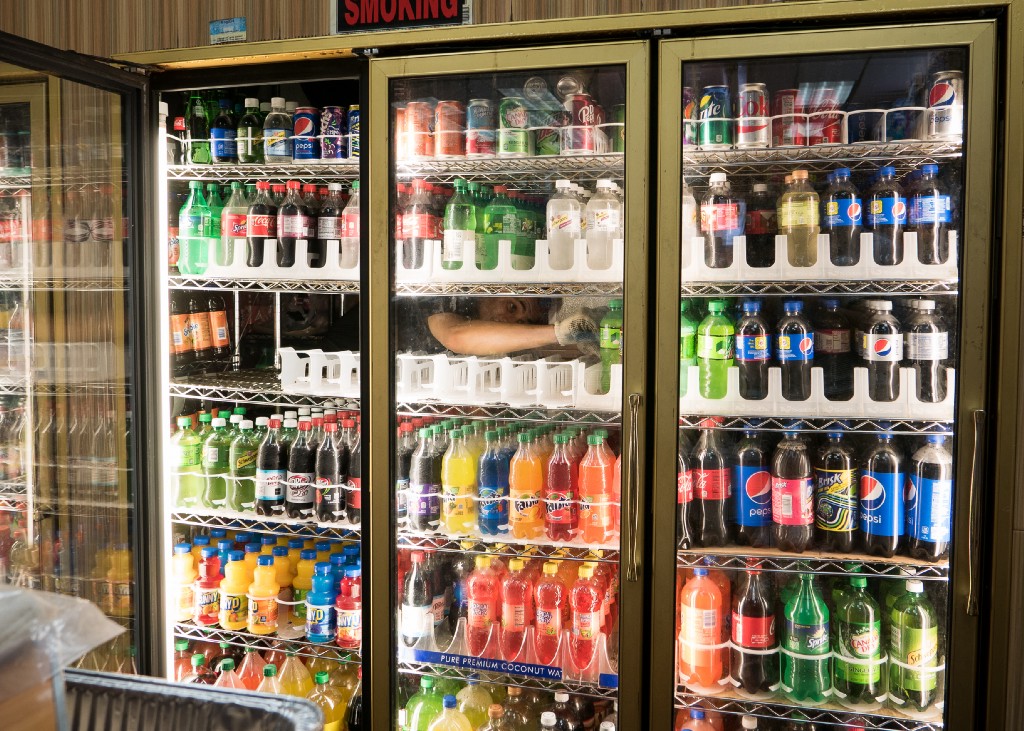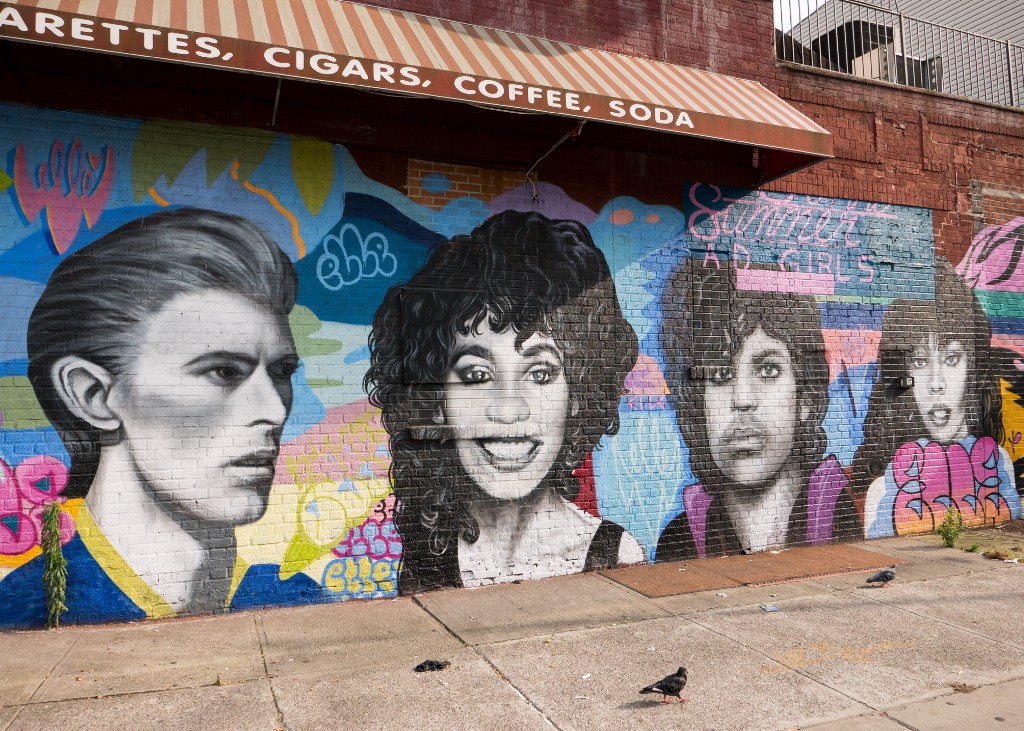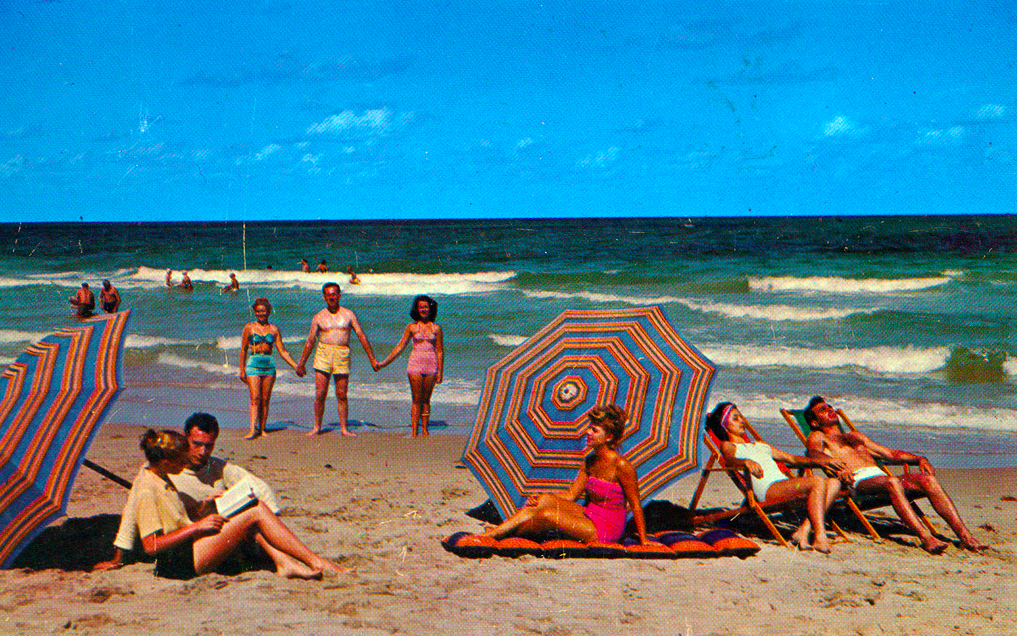the bodega project
Late Night at the 24-Hour Bodega
Tracy O’Neill gets to know the nitehawks at an East Williamsburg deli

By Tracy O’Neill
Presenting the seventh installment of The Bodega Project, where authors from across New York reflect on their communities through that most relied-on and overlooked institution, the bodega. Read the introduction to the series here.
“How is it possible you aren’t in the NBA?” I ask the man behind the deli counter. He is Amir Mothna, six-five, thirty, with fresh braids and a Metallica T-shirt. His cousin Nasir says all Amir’s brothers are this tall. All eight of them. But Amir doesn’t have time for ball. It’s been two, three years since he took time off because it, this deli at 47 Kingsland Avenue, a straight cut across from the Cooper Park Houses in East Williamsburg, is his, and work is different when it’s your own. He doesn’t have time to even watch the playoffs, and still, I think, he is trying not to smile, secretly a little pleased to know that this is how he’s seen: as a guy who ought to have a sneaker endorsement. But it can be hard to tell with him. He’s got the facility to dead out the expression on his face with expertise arrived at in over a decade of bodega life.
I have come to the deli to know him — an assignment that is difficult to convey to Amir when he asks what I have in mind. There are words like “profile,” but they never quite landed in my explanation a few days before. Yes, him. Writing in the world about his life. For a moment, his eyebrows knit together, Amir as incredulous as the moment, later, when I would ask what the object is he hands to a boy across the counter, and the object is a Fidget Spinner: but all the kids have them. In the end, what happens is I stand on the customer side of the deli counter while Amir works, a Plexiglass counter stuffed with candy and Black and Milds between us.
Outside, the north-facing wall of the deli has a memory for death. Or lives, depending how you look at it. You’ll see Bowie there and Prince, Whitney, a spray paint memorial with a trash receptacle done up to resemble a boom box like someone’s dad’s idea of a joke about the garbage on the radio these days. Turn the corner, and the pictures become egg sandwiches. There’s a bulletproof glass lazy Susan for the late-late of a twenty-four hour establishment. And inside, there’s Amir’s cousin Nasir and him. There’s the chef, too. The music is Leaf singing about playing the block like a Tetris game, the aisles are two, and no, there’s no alcohol. There are individually packaged slices of pie.
To arrive at the bodega at 47 Kingsland is for me a matter of two blocks, but the guys from my corner mostly don’t go there. There are two delis on my corner, one so close to my apartment they share a fenced-in quadrangle of refuse, so close I call my stoop the deli annex. I’ve been living in the building for seven years, so I have come to expect the cloth director’s chair on the sidewalk, the parade of coordination of the sort where kicks are always a color-synecdoche for the outfit. I know that when one cries for his dead boys, the other will be ready to talk about the brains of something he believes in called The Man Upstairs. I know the opinions about Lady Gaga’s face, made and unmade, and I know the corner shit-shooters’s critique of the boys you see over the unofficial line where Jackson Street cuts through. They say over there, it gets ignorant. It gets young. And to speak of ignorance, of youth, is, for them, to speak of unnecessary violence with some resignation and also some forgiveness. They are only boys.

But there are no boys now. Now is a Sunday night lull. That will change in an hour. Amir knows the rhythm of when the place will grow bristly with customers or slide out into emptiness. He has theories about populations in time. A rush means the end of a good television show: they obsess, tight to their TV set, and then when it’s done, stomachs announce their dearth. Time to eat.
It’s hard for him pick out the reasons exactly, but Amir figures maybe eating is part of why he got into the deli business, or food anyway. He says he likes to prepare it. When he was a kid, he’d help his mom in the kitchen. She isn’t Yemeni like Amir’s father, but she learned to cook what Amir calls “culture food” from their neighbors in Detroit. His favorite was aseed, a flour and water dish served with rich soup. After he moved to the city in 2005, he went to work at his cousin’s deli in Rosedale. Now there is this place, his and his family’s, and maybe he doesn’t distinguish much between the two when you get down to it. It’s impossible for Amir to answer questions about himself without mentioning family. When I ask what his great dream is, he says that his sons, now four and ten, will go to college, or at least the older one who is less a pain in the ass. When I ask what he does for fun, he says he goes to see relatives in Queens. When I ask how he’d describe himself, he says the task is too difficult but agrees with me that probably Nasir has some ideas in response to the inquiry.
It’s impossible for Amir to answer questions about himself without mentioning family. When I ask what his great dream is, he says that his sons, now four and ten, will go to college, or at least the older one who is less a pain in the ass.
Nasir, after all, is a little more prone to framing identity. The last time I was in the deli, he told me in the neighborhood he’s known as Daddy. He was grabbing my 9-volts and recovering from one of the radiant women who torture him endlessly, recreationally, giving his rap in a nasal drawl.
“Big Daddy, no. Little Daddy. But still, I’m the Daddy.” The man who bags groceries nearby entered the store. “George, George, tell her what they call me,” Nasir called out.
“You, papi chulo?” George said. “Daddy.”
“You see,” Nasir said. “I take care of people.

But there is not time to ask Nasir about Amir because then the door swings open to accommodate a man in a white T-shirt and a woman with a baby in the stroller. For the first time all night, Amir’s face bursts from stoicism, a stunner of a smile with all its generosity and kinship feeling. The man in the white T-shirt, you see, it’s been a minute. They roll that fact around for a while, and then Amir tells the man about a shooting near his other store in Bed-Stuy. What’s happening is face-to-face news, news in the style before newspapers, before feeds feeding Mark Zuckerberg.
“Booming?” the man in the white T-shirt says.
“Four times.”
The man drifts deep into the store where food is prepared. This is the way of deli conversations, the way they come in and out through space, words distributed along pathways of chicken wings and paying up, entrances, exits. I ask Amir about the shooting, and with an affect like a prolonged shrug, he says, “A lot of people got shot.” Amir remembers three or four shootings outside the deli. One was two years ago, when the building was still shared by a laundry operation. What it was was a shot through the window of the Laundromat, metal through glass, metal through the belly at 11:47 AM. The gunman had visited the deli first, cranking his voice around in a fake accent and wearing a black mask. After he was asked to leave, he made a small gesture with his finger and there was a man on the floor.
I ask Amir about the shooting, and with an affect like a prolonged shrug, he says, “A lot of people got shot.”
I think about how he must worry. I think about his wife who he met in Yemen. He’d go to visit the family of his father’s friend, and there she was, this young woman. There was a form to it, manners. Sit with the family. Take in the intelligence of the room. Her family, they’re doctors, lawyers. Alone was not an option. That would come later. He would discover this woman had a way of listening. She didn’t like outside food. She liked to cook. She was trained to nurse people in their homes. And one day they would have a life together, two sons, meals of aseed by her hand, trips to Queens. How, when the shots are fired right outside the deli façade, could he not worry?
But Amir says he doesn’t. He’s used to it. He invokes Detroit. He says a store like this isn’t even possible there. And more locally, it’s worse in East New York, Brownsville, or over where his other store is in Bed-Stuy.
“You got Three Oh Three, you got Sumner, you got the Brevoort,” he says, iterating beef. And then after a little while, almost to himself, he muses. “Niggas don’t fight anymore. They shoot. I don’t know why.”
And perhaps it is this that makes me wonder if he fantasizes about the alternatives. Not just games for tall men but dentistry or social work, plumbing or teaching or playing the keys. It is not only anomalies of violence but the eight, nine, ten, twelve hours of serving people, how Amir says, composed, matter-of-fact, with some people the only way to convey that you are respectable is to speak rudely. But when I ask what Amir would do if he didn’t own a deli, he pauses for a long while. It’s almost as though he’s never considered the answer, though he did work for a time in construction.
“Grocery store,” he says finally.
“If you didn’t have the deli, you’d own a grocery store,” I repeat. At first, I think this must be his dry sense of humor. But no — yes — he’d own a grocery store. They’re bigger.

Because perhaps from the outside, what this life looks like is someone’s forearms resting on the counter, bills covered by loose hands. Bodies shape up to variations on waiting. Someone leaning against a row of Nilla Wafers, phone waist-high. Someone looking to whoever is behind the counter for faster, no that one, no not that but that. And sometimes because there is a woman pitching her voice, there are men wheezily laughing, men muttering about her mental health, and those behind the counter, going a little crazy themselves, throw their arms up, turning away, turning back to mutter or else pacing, singing along with the radio, I need me a li’l baby who gon’ listen. Girl I don’t wanna be the one you iggin’, though ignoring is exactly what he’s trying to do.
But from the inside, you look around and say in the same manner as three-fifty or five dollars, “You got to have patience and strong heart, that’s all.” From the inside, this is what you see: around nine, Teddy and Johnny Boy come in. Teddy pretends he wants a job, and you pretend to be vicious. You tell him no. You tell him he’s unemployable because of his big, fake butt, and you can do that, gun for the laughs, because you’ve known him since he was a kid, when you were first opening your store and he was a little guy down at eye-level with the candy display. Now, he’s twenty, sauntering in with a flashy belt everyone in the store asks about, old enough to mess around with. You can say you watched him grow up.
Johnny Boy gets wrapped up in one of the Fidget Spinners from the jar on the counter. It gets Teddy to thinking about all the toys that meant you were the shit he’d almost forgotten. Those yo-yos with the lights and the little skateboards, what were they called, Tech Decks.
Now, he’s twenty, sauntering in with a flashy belt everyone in the store asks about, old enough to mess around with.
While he waits for hot food, Teddy comes over to the counter, points.
“What’s this?”
“A recorder. I’m interviewing him. He’s going to be famous.”
“You know I been famous,” you say.
“He already got the money.” Teddy pauses. “Are you doing a record deal?” And because he’s old enough to give shit now too, he says, jutting his chin toward Johnny Boy, “That one, he’s a bad influence on the store.”
And maybe even though you know this is joking around, when Teddy begins to offer a total exposé in exchange for one thousand dollars, when he declares that this, in fact, is his store, his and yours by partnership, you think maybe what’s happening is not strictly sarcasm, that the humor derives from its aspirational nature and also the shading of partnership that feels already true or rhymes with truth somehow. Because though maybe part of the appeal of the deli is that it’s yours — not like Chrysler, where your dad worked, where they laid all those people off and left Detroit to be boarded up and drained — the store, it’s not only your own. It’s the block’s too, the same way the picture of yourself rises up from parcels of information about your family.
When asked about challenges, you can’t really think of any, or at least you don’t mention them. You don’t agree that it must have been difficult to open the store. You recall that they were pleased to have a twenty-four-hour setup on the block, and you’re baffled by the question, “Who was happy?”
“The community,” you say.
A woman comes in with her own chilled wine glass for the Snapple she intends to purchase. Then it’s the man with the polite daughter wearing an on-point flight jacket. She wants to hold the Fidget Spinner too, just like all the kids, and you know one of these days she’ll walk in a woman, and you’ll remember when she was four foot-something, asking her dad for the cherry gummies, that weird little toy everyone used to have. And even though what’s now in her hand will already be memorabilia, the Sunday night chat of regulars will remain, as big and familiar to you as the faces of icons painted on your walls.


About the Author
Tracy O’Neill is the author of The Hopeful, one of Electric Literature’s Best Novels of 2015. The same year, she was named a National Book Foundation 5 Under 35 honoree, long-listed for the Flaherty-Dunnan Prize, and was a Narrative Under 30 finalist. In 2012, she was awarded the Center for Fiction’s Emerging Writers Fellowship. Her writing has appeared in Granta, Rolling Stone, The Atlantic, the New Yorker, LitHub, BOMB, Vol. 1 Brooklyn, The Literarian, New World Writing, Narrative, Scoundrel Time, Guernica, Bookforum, Electric Literature, Grantland, Vice, The Guardian, VQR, and the San Francisco Chronicle. Her column Body Language appears in Catapult. She currently teaches at the City College of New York and is pursuing a PhD at Columbia University.
— Photography by Anu Jindal
The Bodega Project – Electric Literature
— The Bodega Project is supported by a grant from the New York City Department of Cultural Affairs.









